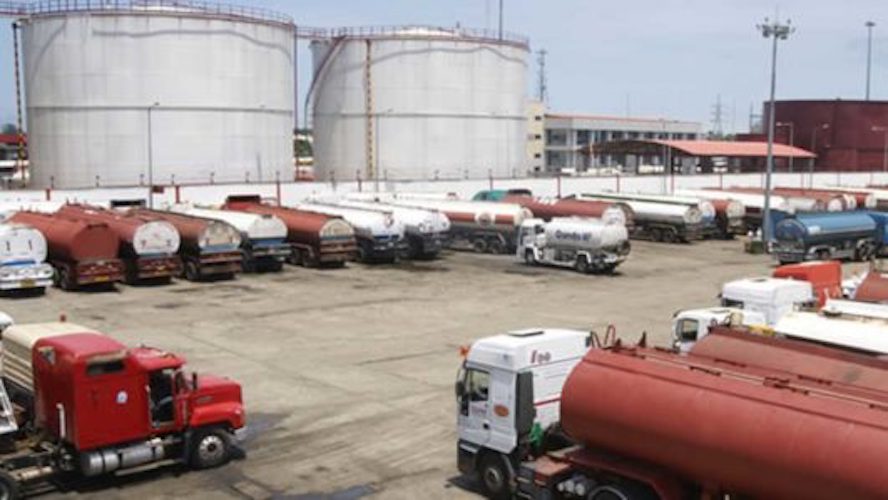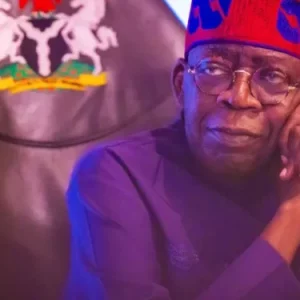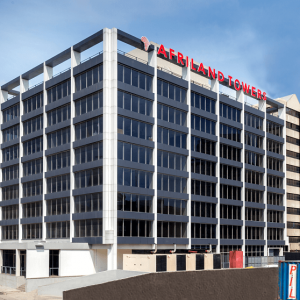•Issue seven-day ultimatum
•Dangote: We stand by our statement, go and seek redress
•Accuses association of asking for annual subsidy of N1.5tn
•Ndume backs refinery’s management, slams saboteurs
The Depot and Petroleum Products Marketers Association of Nigeria (DAPPMAN) and the Dangote refinery again clashed yesterday over the allegation of diversion of petroleum products by members of the association, and demanded a retraction of the claim in seven days.
DAPPMAN said the refinery should provide documented proof of its members diverting products, threatening to take legal action against the refinery if it failed to comply with its position.
But in a response last night, the Dangote refinery stated that it was standing by its comments, insisting that any party which feels aggrieved by the contents of the publication is entitled to seek redress through the appropriate legal channels, without recourse to any so-called seven-day notice.
In the same vein, Borno South Senator, Ali Ndume, has issued a strong appeal for restraint, urging stakeholders to stop what he described as a coordinated media demonisation campaign against the Dangote refinery.
DAPPMAN in a statement yesterday said: “We challenge Dangote refinery to present verifiable evidence that DAPPMAN members are diverting products to neighbouring countries. Smuggling is a national security matter. If any member is complicit, let the relevant agencies act.
“We issue a seven-day ultimatum to the refinery to either retract this allegation or provide documented proof. If neither occurs, we reserve the right to seek legal redress”, DAPPMAN stated.
Dangote had in a widely advertised statement on Monday, in response to an earlier statement by DAPPMAN, accused the association’s members of engaging in diversion of petrol from Nigeria to neighbouring West African countries.
The company added that DAPPMAN was the force behind the recent strike action embarked by the Nigerian Union of Petroleum and Natural Gas Workers (NUPENG).
But in its statement in response to Dangote, DAPPMAN in its 10-point rebuttal, categorically rejected what it described as the misleading and factually incorrect statements made by the refinery.
“DAPPMAN categorically rejects the misleading and factually incorrect statements made by the Dangote Petroleum Refinery in its press release of 15 September 2025.
“As an association representing legitimate depot owners and marketers in Nigeria’s deregulated downstream sector, we are compelled to correct the record and address claims that threaten the integrity of our industry, mislead the public, and undermine regulatory confidence.
“We categorically state that our members, including Matrix, AA Rano, AYM Shafa, and NIPCO are fully tax compliant as we are not aware of any pending cases or disputes against them for default in their tax obligations.”
It described Dangote Refinery’s allegation of sponsoring NUPENG strike as false and baseless, saying the refinery’s claim that DAPPMAN sponsored NUPENG suggests a fundamental lack of understanding of how Nigeria’s downstream ecosystem works.
It said stakeholders such as NUPENG, Nigerian Association of Road Transport Operators (NARTO), Petroleum and Retail Outlet Owners Association of Nigeria (PETROAN), Major Energies Marketers Association of Nigeria (MEMAN), Independent Petroleum Marketers Association of Nigeria (IPMAN) and DAPPMAN were independent entities, each with distinct roles and interests.
The statement noted that DAPPMAN does not control labour unions or other industry associations and has no business interfering in their decisions.
“DAPPMAN did not sponsor or support NUPENG’s proposed industrial action. Our role has been one of de-escalation, focused on averting disruption to fuel supply and national mobility,” the association added.
DAPPMAN argued that the recent reductions in pump prices were primarily the result of a number of factors including “a stronger naira (N1,500–N1,550/$ since Q1 2025), supported by the fiscal and monetary reforms of President Bola Tinubu’s administration and the Central Bank of Nigeria (CBN), declining international crude prices (Brent crude fell from $92 to $76 per barrel) market deregulation and improved FX liquidity under the current administration.”
On round-tripping accusations by Dangote Refinery, DAPPMAN described it as misleading, saying, allegations that Nigerian marketers import Dangote-refined products from Togo are both misleading and ironic.
“For clarity, Offshore Lome is a recognised West African (WAF) trading hub, not a blending plant, as some commentators have suggested. Just as the Dangote Refinery is a refinery and not a factory, Offshore Lome is a trading point where cargoes are exchanged, not processed,” they added.
It noted that pricing ‘Offshore Lome’ reflects international market transactions and was not the same as retail pricing within Lome, Togo.
“It is, in fact, the Dangote Refinery that offers discounts of over $40/MT to foreign traders while denying Nigerian marketers access to coastal vessel loading and restricting them to gantry-only lifting. This restrictive access and pricing structure create the very arbitrage opportunity the refinery now criticizes”, DAPPMAN stated.
“Dangote’s claims that DAPPMAN members import fuels with sulphur levels above 50ppm contradict its own operational record. The refinery itself applied for waivers from NMDPRA to distribute high-sulphur products, in direct contravention of PIA Section 317(11). We challenge the refinery to publicly deny this”, it stated.
But in a response last night, Dangote stated: “We wish to emphasise that any party who feels aggrieved by the contents of the publication is entitled to seek redress through the appropriate legal channels, without recourse to any so-called seven-day notice. We are fully prepared to defend our position.
“We wish to clarify that the crux of DAPPMAN’S sustained attacks Dangote Petroleum Refinery stems from their demand for an annual subsidy of N1.505 trillion to enable their members to match the refinery’s gantry prices at their own depots.
“While we offer petroleum products to marketers at our gantry price, DAPPMAN insists on receiving products via coastal logistics, an option that would add N75 per litre in additional costs. Based on projected daily consumption volumes of 40 million litres of Premium Motor Spirit (PMS) and 15 million litres of Automotive Gas Oil (AGO), this amounts to an additional annual cost of N1.505 trillion (N1,505,625,000,000), which they are effectively asking us to absorb and pass it on to consumers.
“Specifically, the marketers are demanding that we discount N70/litre in coastal freight, NIMASA, NPA and other associated costs as well as N5/litre for the cost of pumping into vessels to enable them to transport products from our refinery to their depots in Apapa and sell at the same price as our gantry.
“We wish to make it clear that we have no intention of increasing our gantry price to accommodate such demands, nor are we willing to pay a subsidy of over N1.5 trillion, a practice that historically defrauded the Federal Government for many years. DAPPMAN and other marketers are welcome to lift products directly from our gantry and benefit from our logistics-free initiative,” Dangote added.
But in defence of Dangote, Ndume, a former Senate Leader, in a statement yesterday, warned that the barrage of accusations directed at the $20 billion privately-owned refinery risks undermining national economic interest, even as the federal government has created a level playing field for all investors in the oil and gas space.
Ndume cautioned against what he described as a “poisonous media narrative” that seeks to cast the Dangote Refinery as a threat to fair competition and national interest.
He noted that contrary to the claims of its critics, the refinery represents the kind of bold, long-term investment the country desperately needs to reduce dependence on imported fuel and build economic resilience.
Ndume said: “Before Dangote took the risk to build his refinery, previous administrations had granted licenses to many Nigerians to do the same. What did they do with it? Some simply capitalised on crude oil allocation incentives without ever breaking ground on a refinery project.”
Ndume recalled that as far back as 2002, at least 12 licenses were issued to private sector players to build refineries. He said the licenses were later revoked, and a new round of permits were issued in 2007 by the then Department of Petroleum Resources (DPR).
Yet, according to him, most of the licensees failed to act. He said: “Those parading themselves as fuel importers today didn’t seize the initiative to come together and build refineries. Again, under the late Muhammadu Buhari administration, modular refinery licenses were issued.
“How many of them actually scratched the surface? But they are now ganging up to accuse Dangote falsely of monopolising the market.”
The senator stressed that the Petroleum Industry Act (PIA) provides a robust legal framework for a deregulated downstream sector, where fair competition, not protectionism, should thrive.
According to him, the Dangote Refinery, which has the capacity to process 650,000 barrels of crude oil per day, is a vital strategic asset and not a threat.
Stay ahead with the latest updates!
Join The Podium Media on WhatsApp for real-time news alerts, breaking stories, and exclusive content delivered straight to your phone. Don’t miss a headline — subscribe now!
Chat with Us on WhatsApp







